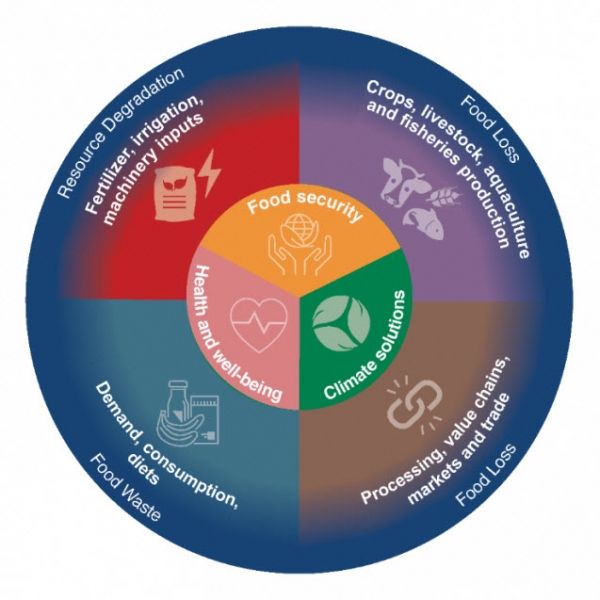When these activities are considered together, they represent 21 to 37 percent of total human-caused greenhouse gas emissions, the paper notes. It says that the new approach would enable a fuller assessment of the vulnerability of the global food system to increasing droughts, intensifying heatwaves, heavier downpours and coastal flooding. Food system responses thus could play a major role in both adapting to and mitigating climate change, the authors assert.
The authors of the paper worked together on the Food Security chapter of the recent Intergovernmental Panel on Climate Change Special Report on Climate Change and Land. They work with a wide range of food systems from around the world, from major commodity and livestock producers to smallholder farming systems.
“The global food system approach represents a significant advance in helping producers and consumers plan effective and well-integrated climate change responses,” said Cynthia Rosenzweig, the lead author and head of the Climate Impacts Group at the NASA Goddard Institute for Space Studies and Columbia University’s Center for Climate Systems Research.
Continue reading at Columbia University Earth Institute
Image via Columbia University Earth Institute


